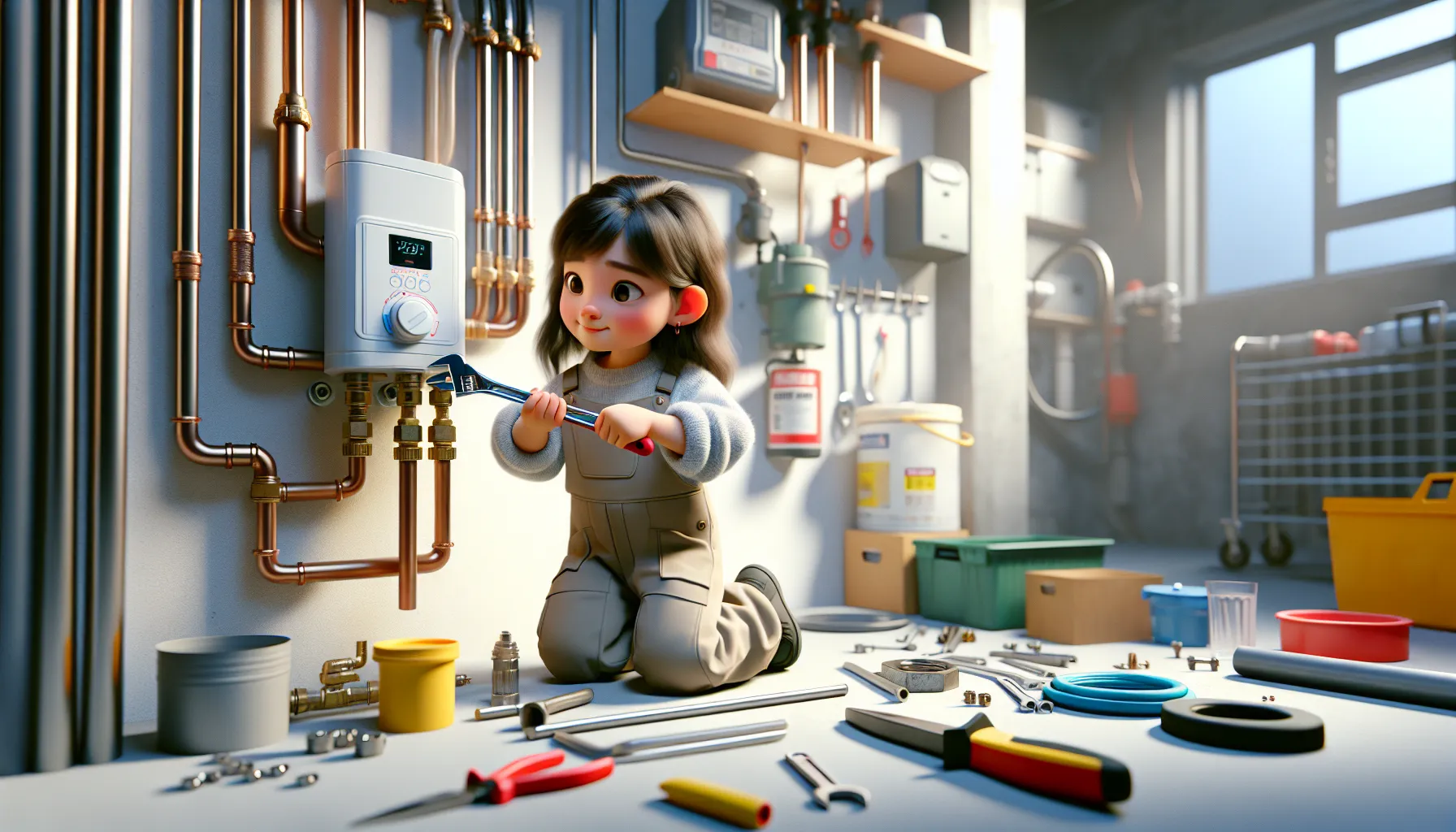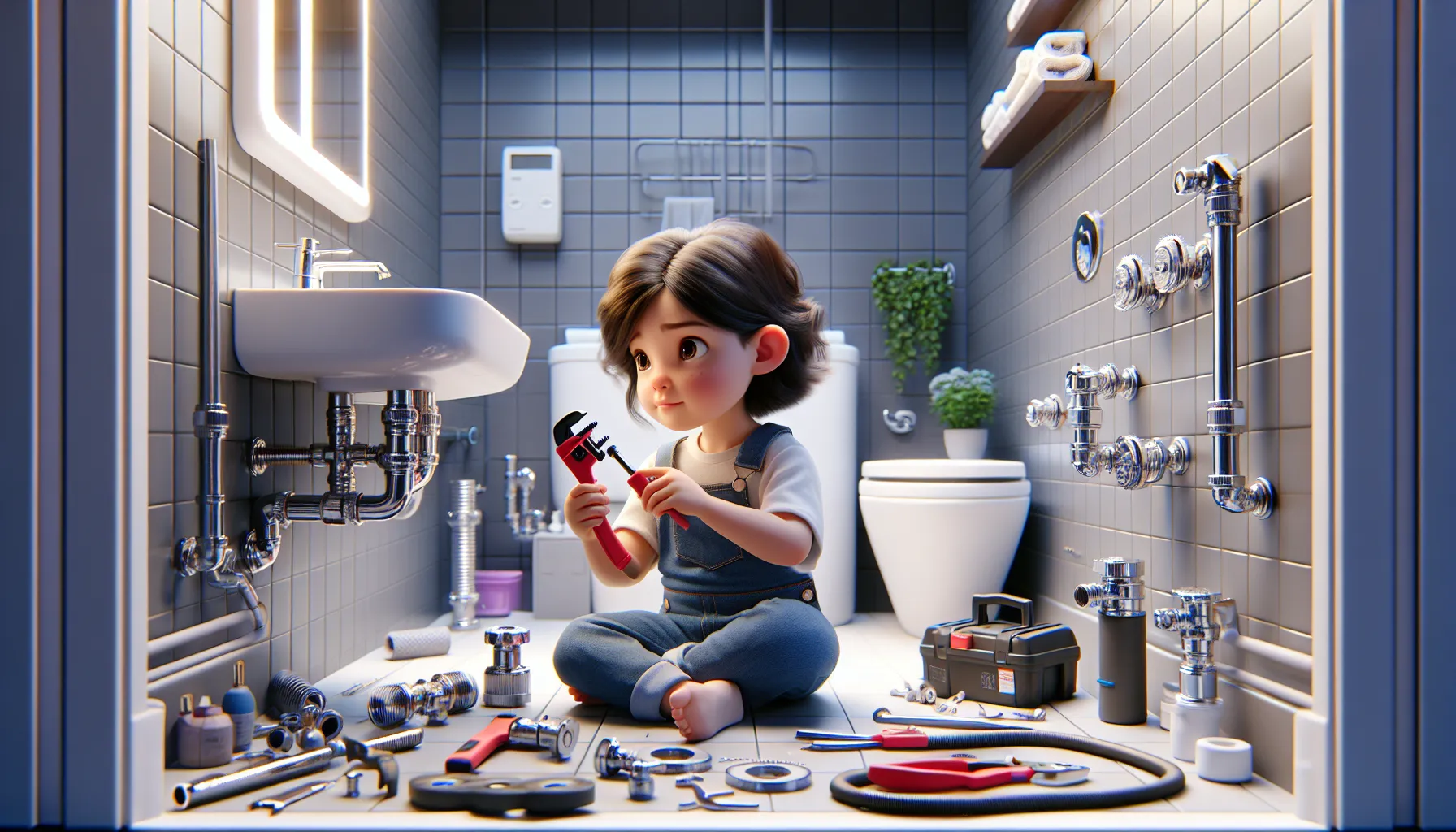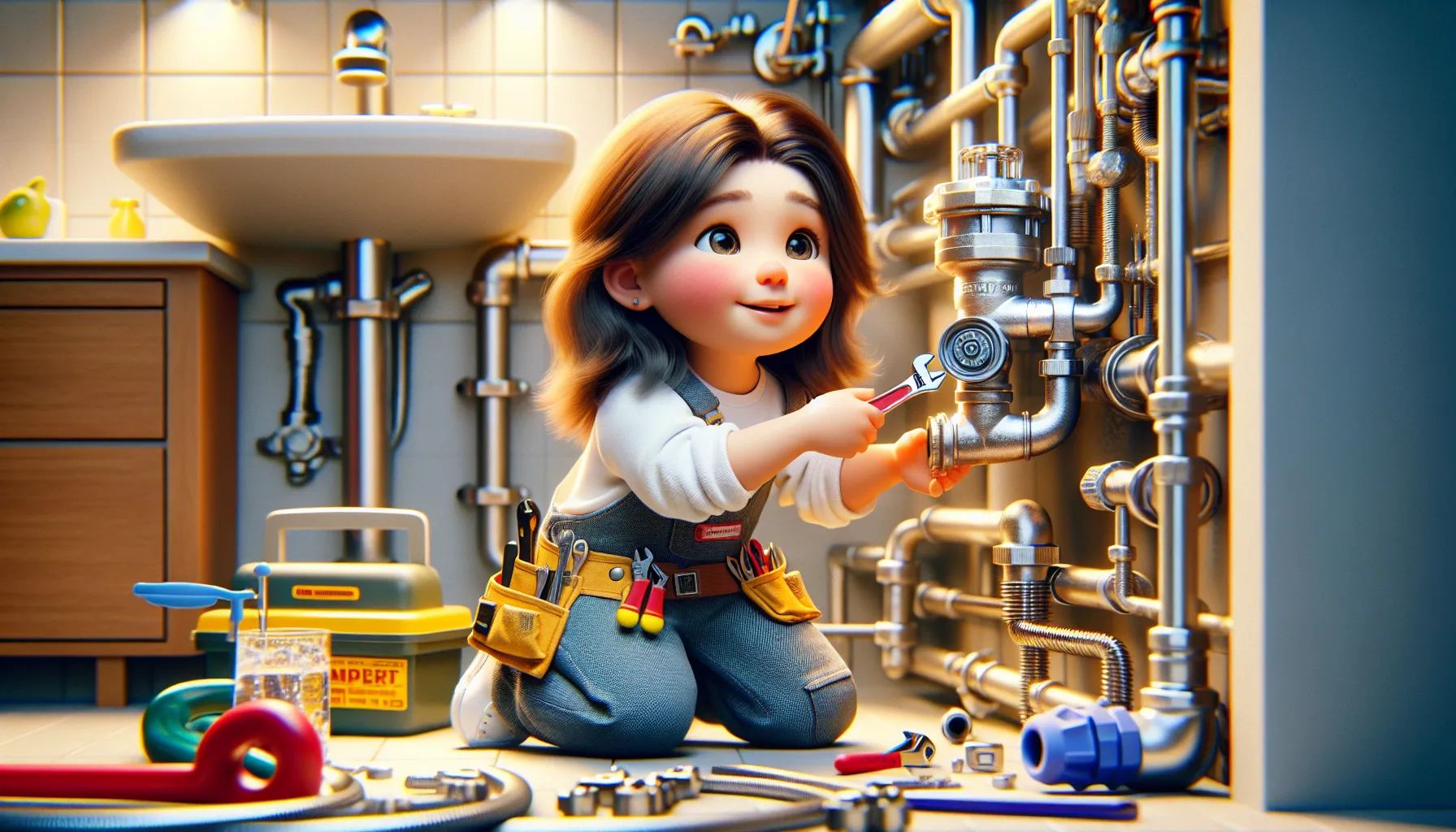Properly maintaining your water heater is vital to ensure its longevity and efficiency. Neglecting regular maintenance can lead to costly repairs or even dangerous malfunctions. By following a few simple steps, you can extend the life of your water heater and ensure hot water continues to flow in your home.
Key Takeaways:
- Regular Flushing: Flushing your water heater at least once a year helps to remove sediment buildup, increasing its efficiency and lifespan.
- Check Anode Rod: Inspect the anode rod every 3-4 years and replace it if necessary to prevent corrosion inside the tank.
- Set Temperature: Keep the water heater temperature at 120 degrees Fahrenheit to prevent scalding and reduce energy consumption.
- Inspect for Leaks: Regularly check for leaks in the tank, connections, or valves, and repair them promptly to prevent water damage.
- Professional Maintenance: Consider hiring a professional to perform annual maintenance to ensure optimal performance and identify any potential issues early on.
Understanding Your Water Heater
If you’re looking to properly maintain your water heater, it’s vital to first understand the different types available on the market.
Types of Water Heaters
There are mainly three types of water heaters commonly found in households:
- Conventional (Storage) Water Heaters
- Tankless (On-Demand) Water Heaters
- Heat Pump Water Heaters
Perceiving the differences between these types will help you determine the best option for your household’s needs.
| Heaters | |
| Conventional (Storage) Water Heaters | Tankless (On-Demand) Water Heaters |
| Heat Pump Water Heaters |
Key Components and How They Work
You need to understand the key components of your water heater and how they work to ensure it functions optimally. The heating element, thermostat, and dip tube are crucial parts that contribute to heating the water efficiently. Furthermore, the anode rod plays a vital role in preventing corrosion inside the tank, extending the lifespan of your water heater.
Understanding how these components work together will give you insights into the workings of your water heater. Proper maintenance of these parts is vital to ensure your water heater operates safely and efficiently. Regular inspection and replacement of worn-out components can prevent potential hazards and ensure a constant supply of hot water in your household.
Setting Up a Maintenance Schedule
There’s no denying that regular maintenance is key to ensuring your water heater runs efficiently and lasts for years to come. Setting up a maintenance schedule will help you stay on track and avoid any unexpected issues that may arise.
Determining the Frequency of Maintenance
You should consider the age of your water heater, the water quality in your area, and the manufacturer’s recommendations when determining how often maintenance should be performed. In general, it is recommended to have a professional inspect and tune up your water heater at least once a year. However, if you notice any issues such as strange noises, leaks, or inconsistent water temperatures, do not hesitate to schedule a maintenance check sooner.
Seasonal Maintenance Tips
Some seasonal maintenance tips to keep in mind include draining and flushing your water heater at least once a year to remove sediment build-up, checking the pressure relief valve for proper operation, and insulating exposed pipes to prevent heat loss. The temperature setting on your water heater should also be adjusted seasonally to ensure optimal efficiency.
- Drain and flush the water heater annually
- Check the pressure relief valve
- Insulate exposed pipes
The key to proper seasonal maintenance is consistency and attention to detail. By following these tips, you can prolong the life of your water heater and prevent costly repairs in the future.
Understanding the Importance of Seasonal Maintenance
Some dangerous consequences of neglecting seasonal maintenance include increased energy consumption, potential leaks leading to water damage, and even the risk of a complete breakdown of the water heater. On the other hand, proper maintenance can help you save money on your energy bills, extend the lifespan of your water heater, and ensure a reliable supply of hot water when you need it the most.
How-to Guide for Basic Maintenance Tasks
Draining and Flushing the Tank
One of the most important maintenance tasks for your water heater is draining and flushing the tank. Over time, sediment can build up at the bottom of the tank, reducing efficiency and potentially causing damage. To do this, first, turn off the power or gas supply to the water heater. Then, connect a garden hose to the drain valve at the bottom of the tank and run it to a drain or outside. Open the valve and let the water drain completely.
Once the tank is empty, close the drain valve and refill the tank. Repeat this process a few times until the water runs clear. Regularly flushing the tank can extend the life of your water heater and improve its efficiency.
Checking and Replacing the Anode Rod
Some water heaters come equipped with an anode rod, a sacrificial rod that helps prevent corrosion inside the tank. Over time, the rod can deteriorate and need replacement. To check the anode rod, locate it on top of the water heater and use a wrench to loosen it. If the rod is less than half an inch thick or shows signs of heavy corrosion, it’s time to replace it.
This maintenance task should be done at least once every few years, depending on the water quality in your area. Replacing the anode rod can prevent rust and leaks in your water heater, saving you from costly repairs or a full replacement.
Factors Affecting Water Heater Performance
Despite regular maintenance, there are several factors that can impact the performance of your water heater. Understanding these factors is crucial in ensuring that your water heater operates efficiently and reliably for years to come.
Water Quality and Its Impacts
Impacts of water quality on water heater performance cannot be underestimated. Hard water, for example, can lead to mineral buildup in the tank, reducing heating efficiency and eventually causing damage to the unit. Additionally, high levels of sediment in the water can also contribute to performance issues by clogging the system and reducing its overall effectiveness.
After addressing any water quality issues, consider installing a water softener or a filtration system to improve the quality of water entering your water heater. This simple step can significantly extend the life of your unit and improve its overall performance.
Power Source Considerations (Gas vs. Electric)
Electric water heaters are known for their energy efficiency and ease of installation. They are generally safer and require less maintenance compared to gas water heaters. However, gas water heaters tend to heat water faster and are often more cost-effective to operate in the long run.
With proper ventilation and regular inspections, gas water heaters can be a reliable and efficient choice for many households. It’s important to consider your specific needs and preferences when choosing between gas and electric water heaters to ensure optimal performance and energy savings in the long term.
Advanced Maintenance Techniques
-
Temperature and Pressure Valve Inspection
The temperature and pressure valve on your water heater is a crucial safety component that prevents excessive pressure buildup in the tank. It is crucial to inspect this valve regularly to ensure it is functioning properly.
What to check for: What to do: Signs of leakage or corrosion Replace the valve if any issues are detected Proper operation when manually opened Flush the valve to remove any debris and test its functionality -
Insulating Your Water Heater
Insulating your water heater can help improve its energy efficiency and reduce heat loss. By adding insulation to your water heater, you can save money on your energy bills and prolong the lifespan of the appliance.
Insulating Your Water Heater
You can purchase a water heater blanket or insulation kit at your local hardware store to insulate your water heater. Make sure to follow the manufacturer’s instructions carefully to ensure proper installation and avoid any safety hazards.
Understanding and implementing these advanced maintenance techniques will not only enhance the efficiency and safety of your water heater but also prolong its lifespan. By regularly inspecting the temperature and pressure valve and insulating your water heater, you can prevent costly repairs and improve energy efficiency. It is crucial to stay proactive in maintaining your water heater to ensure it continues to provide reliable hot water for your household.
When to Call a Professional
Identifying Issues Beyond Basic Maintenance
For homeowners, it’s crucial to be aware of the signs indicating that your water heater may have issues beyond what basic maintenance can fix. Clearly identifying these problems can save you time, money, and potential safety risks. If you notice any of the following red flags, it’s time to call a professional:
- Strange noises coming from the water heater
- Water leaking around the base of the unit
- Inconsistent water temperature
- Rusty or discolored water coming from the taps
Recommended Professional Maintenance Services
Regarding Services that go beyond DIY maintenance, it’s vital to have a qualified professional inspect and service your water heater regularly. Professional maintenance services can include:
- Flushing out sediment buildup from the tank
- Checking and replacing the anode rod
- Inspecting and cleaning the heating elements
Beyond just performing these routine tasks, professional technicians have the expertise to identify potential problems early on and prevent major breakdowns. Regular professional maintenance not only extends the lifespan of your water heater but also ensures safe and efficient operation.
Summing up
With these considerations in mind, properly maintaining your water heater is crucial for ensuring its efficiency and longevity. By implementing regular flushing, checking for leaks, adjusting the temperature settings, and inspecting the anode rod, you can prevent unexpected breakdowns and costly repairs. Remember to consult the manufacturer’s instructions and seek professional help if needed to keep your water heater functioning optimally.
FAQ
Q: Why is it important to maintain your water heater?
A: Proper maintenance of your water heater ensures that it functions efficiently, extends its lifespan, and reduces the risk of costly repairs or replacements.
Q: How often should I perform maintenance on my water heater?
A: It is recommended to perform maintenance on your water heater at least once a year to keep it running smoothly and to catch any potential issues early.
Q: What are some signs that indicate my water heater needs maintenance?
A: Signs that your water heater needs maintenance include strange noises, inconsistent water temperature, rusty water, leaks, or age (typically 8-12 years for a standard water heater).
Q: What are some maintenance tasks I should do for my water heater?
A: Maintenance tasks for your water heater include flushing the tank to remove sediment, checking and replacing the anode rod if necessary, testing the pressure relief valve, and inspecting for leaks.
Q: Can I perform maintenance on my water heater myself or should I hire a professional?
A: While some maintenance tasks can be done by homeowners, such as flushing the tank, more complex tasks like replacing the anode rod or diagnosing issues are best left to professionals to ensure safety and proper maintenance.



